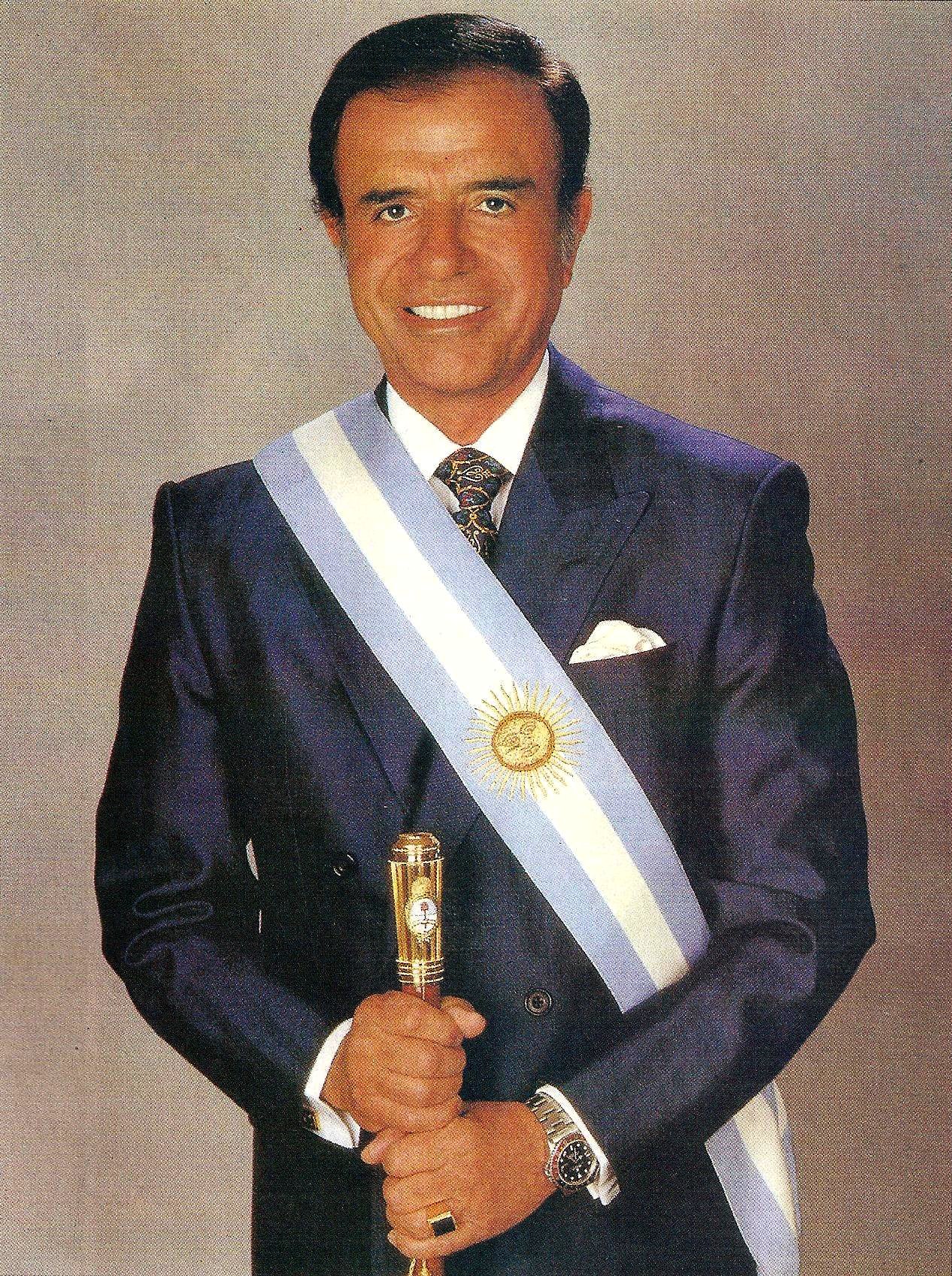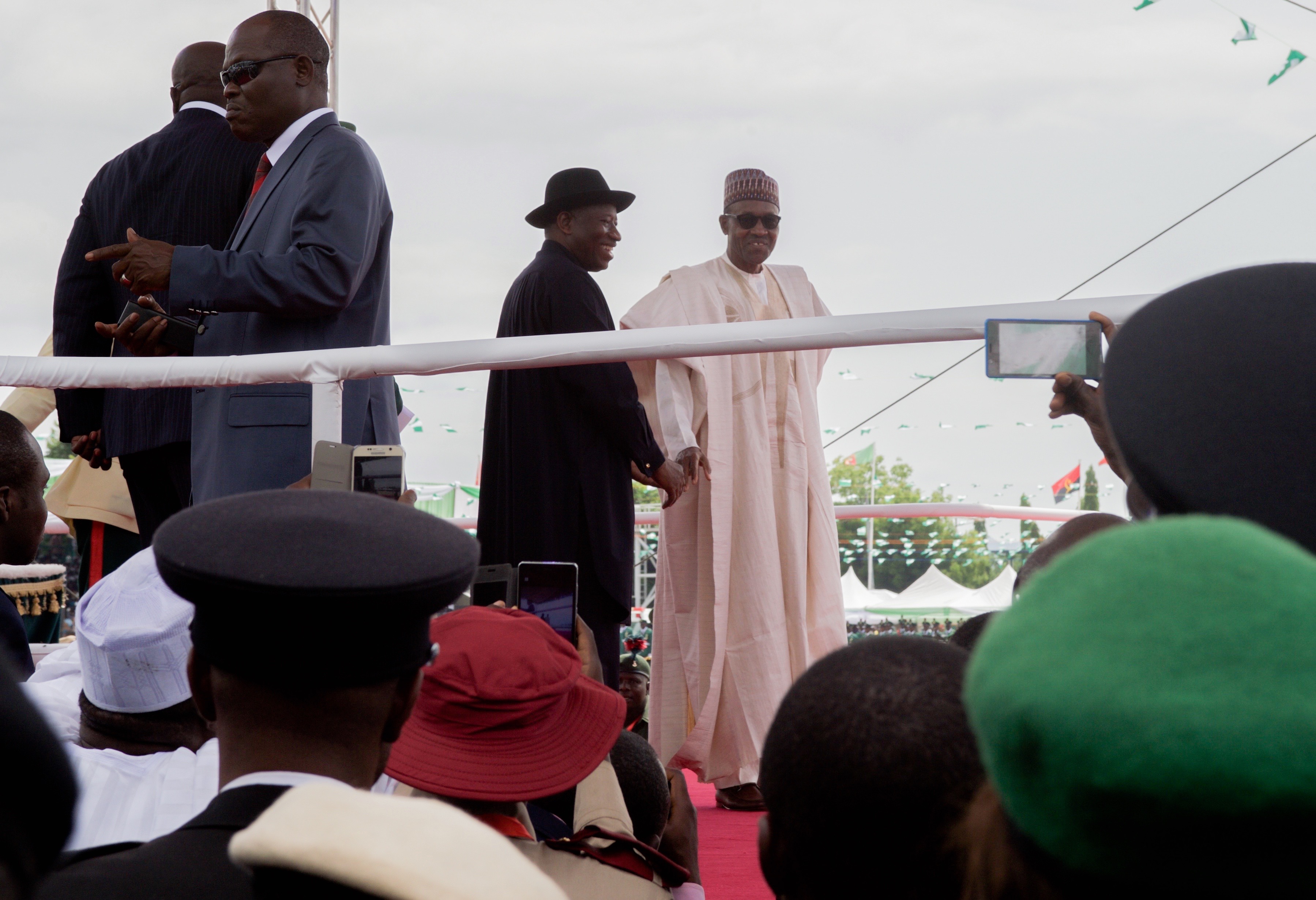|
Buharism
Buharism refers to the socio-political and economic ideology of Nigerian President and former military head of state Muhammadu Buhari. Following the 1983 Nigerian coup d'etat which truncated the Second Nigerian Republic, General Muhammadu Buhari became military head of state. He immediately launched an unprecedented military-led social engineering campaign, War Against Indiscipline, with the aim of forcibly promoting civic virtues. Buharism came to represent a national third force at the height of the Cold War era, favouring neither communism nor capitalism. His economic ideology was solely predicated on the practicalities needed for a Third World nation to develop: mainly economic self-sufficiency, disciplined citizenry, and national development. As the supreme leader and commander of the regime, Buhari significantly derived charismatic authority. The revisionist 1985 Nigerian coup d'état was the antithesis of Buharism; his Chief of Army Staff and successor General I ... [...More Info...] [...Related Items...] OR: [Wikipedia] [Google] [Baidu] |
Muhammadu Buhari
Muhammadu Buhari (born 17 December 1942) is a Nigerian politician and current president of Nigeria since 2015. Buhari is a retired Nigerian Army major general who served as the country's military head of state from 31 December 1983 to 27 August 1985, after taking power in a military coup d'état. The term Buharism is ascribed to the authoritarian policies of his military regime. Buhari ran for president of Nigeria in 2003, 2007, and 2011. In December 2014, he emerged as the presidential candidate of the All Progressives Congress party for the 2015 general election. Buhari won the election, defeating incumbent President Goodluck Ebele Jonathan. This was the first time in the history of Nigeria that an incumbent president lost a general election. He was sworn in on 29 May 2015. In February 2019, Buhari was re-elected, defeating his closest rival, former Vice President Atiku Abubakar, by over 3 million votes. Early life Buhari was born to a Fulani family on 17 December 1 ... [...More Info...] [...Related Items...] OR: [Wikipedia] [Google] [Baidu] |
1985 Nigerian Coup D'état
The 1985 Nigerian coup d'état was a military coup which took place in Nigeria on 27 August 1985 when a faction of mid-level Armed Forces officers, led by the Chief of Army Staff Major-General Ibrahim Babangida, overthrew the government of Major General Muhammadu Buhari (who himself took power in the 1983 coup d'état). Buhari was then detained in Benin City until 1988. Babangida justified the coup by saying that Buhari failed to deal with the country's economic problems by implementing Buharism, and promised "to rejuvenate the economy An economy is an area of the production, distribution and trade, as well as consumption of goods and services. In general, it is defined as a social domain that emphasize the practices, discourses, and material expressions associated with the ... ravaged by decades of government mismanagement and corruption". Babangida then replaced the ruling Supreme Military Council (SMC) with a new Armed Forces Ruling Council (AFRC), which lasted un ... [...More Info...] [...Related Items...] OR: [Wikipedia] [Google] [Baidu] |
Devaluation
In macroeconomics and modern monetary policy, a devaluation is an official lowering of the value of a country's currency within a fixed exchange-rate system, in which a monetary authority formally sets a lower exchange rate of the national currency in relation to a foreign reference currency or currency basket. The opposite of devaluation, a change in the exchange rate making the domestic currency more expensive, is called a '' revaluation''. A monetary authority (e.g., a central bank) maintains a fixed value of its currency by being ready to buy or sell foreign currency with the domestic currency at a stated rate; a devaluation is an indication that the monetary authority will buy and sell foreign currency at a lower rate. However, under a floating exchange rate system (in which exchange rates are determined by market forces acting on the foreign exchange market, and not by government or central bank policy actions), a decrease in a currency's value relative to other major curr ... [...More Info...] [...Related Items...] OR: [Wikipedia] [Google] [Baidu] |
Balance Of Payments
In international economics, the balance of payments (also known as balance of international payments and abbreviated BOP or BoP) of a country is the difference between all money flowing into the country in a particular period of time (e.g., a quarter or a year) and the outflow of money to the rest of the world. These financial transactions are made by individuals, firms and government bodies to compare receipts and payments arising out of trade of goods and services. The balance of payments consists of two components: the current account and the capital account. The current account reflects a country's net income, while the capital account reflects the net change in ownership of national assets. History Until the early 19th century, international trade was heavily regulated and accounted for a relatively small portion compared with national output. In the Middle Ages, European trade was typically regulated at municipal level in the interests of security for local industry ... [...More Info...] [...Related Items...] OR: [Wikipedia] [Google] [Baidu] |
Washington Consensus
The Washington Consensus is a set of ten economic policy prescriptions considered to constitute the "standard" reform package promoted for crisis-wracked developing countries by Washington, D.C.-based institutions such as the International Monetary Fund (IMF), World Bank and United States Department of the Treasury.Williamson, John"What Washington Means by Policy Reform", in: Williamson, John (ed.): ''Latin American Readjustment: How Much has Happened'', Washington: Peterson Institute for International Economics 1989. The term was first used in 1989 by English economist John Williamson. The prescriptions encompassed free-market promoting policies in such areas as macroeconomic stabilization, economic opening with respect to both trade and investment, and the expansion of market forces within the domestic economy. Subsequent to Williamson's use of the terminology, and despite his emphatic opposition, the phrase Washington Consensus has come to be used fairly widely in a secon ... [...More Info...] [...Related Items...] OR: [Wikipedia] [Google] [Baidu] |
2019 Nigerian General Election
General elections were held in Nigeria on 23 February 2019 to elect the President, Vice President, House of Representatives and the Senate. The elections had initially been scheduled for 16 February, but the Electoral Commission postponed the vote by a week at 03:00 on the original polling day, citing logistical challenges in getting electoral materials to polling stations on time. In some places, the vote was delayed until 24 February due to electoral violence. Polling in some areas was subsequently delayed until 9 March, when voting was carried out alongside gubernatorial and state assembly elections. The elections were the most expensive ever held in Nigeria, costing ₦69 billion (US$625 million) more than the 2015 elections. Incumbent president Muhammadu Buhari won his reelection bid, defeating his closest rival Atiku Abubakar by over 3 million votes. He was issued a Certificate of Return, and was sworn in on 29 May 2019, the former date of Democracy Day. Electoral syst ... [...More Info...] [...Related Items...] OR: [Wikipedia] [Google] [Baidu] |
Northern Nigeria
Northern Nigeria was an autonomous division within Nigeria, distinctly different from the southern part of the country, with independent customs, foreign relations and security structures. In 1962 it acquired the territory of the British Northern Cameroons, which voted to become a province within Northern Nigeria. In 1967, Northern Nigeria was divided into the North-Eastern State, North-Western State, Kano State, Kaduna State, Kwara State, and the Benue-Plateau State, each with its own Governor. History Prehistory The Nok culture, an ancient culture dominated most of what is now Northern Nigeria in prehistoric times, its legacy in the form of terracotta statues and megaliths have been discovered in Sokoto, Kano, Birinin Kudu, Nok and Zaria. The Kwatarkwashi culture, a variant of the Nok culture centred mostly around Zamfara in Sokoto Province is thought by some to be the same or an offshoot of the Nok. The Fourteen Kingdoms The Fourteen Kingdoms unified the diverse ... [...More Info...] [...Related Items...] OR: [Wikipedia] [Google] [Baidu] |
Cult Of Personality
A cult of personality, or a cult of the leader, Mudde, Cas and Kaltwasser, Cristóbal Rovira (2017) ''Populism: A Very Short Introduction''. New York: Oxford University Press. p. 63. is the result of an effort which is made to create an idealized and heroic image of a leader by a government, often through unquestioning flattery and praise. Historically, it has developed through techniques of mass media, propaganda, fake news, spectacle, the arts, patriotism, and government-organized demonstrations and rallies. A cult of personality is similar to apotheosis, except that it is established by modern social engineering techniques, usually by the state or the party in one-party states and dominant-party states. A cult of personality often accompanies the leader of a totalitarian or authoritarian countries. It can also be seen in some monarchies, theocracies, and failed democracies. Background Throughout history, monarchs and other heads of state were often held in ... [...More Info...] [...Related Items...] OR: [Wikipedia] [Google] [Baidu] |
Goodluck Jonathan
Goodluck Ebele Azikiwe Jonathan (born 20 November 1957)Lawson Heyford, ''The Source'' (Lagos), 11 December 2006. is a Nigerian politician who served as the President of Nigeria from 2010 to 2015. He lost the 2015 presidential election to former military head of state General Muhammadu Buhari, and was the first incumbent president in Nigerian history to concede defeat in an election. Prior to that, he served as Vice President of Nigeria from 2007 to 2010 under the administration of Umaru Musa Yar'Adua; and in oil-rich Bayelsa State as Governor of Bayelsa State from 2005 to 2007. Early life Goodluck Jonathan was born on 20 November 1957 in Ogbia to a Christian family of canoe makers,Lawson Heyford"Jonathan: A Colossus at 49", ''The Source'' (Lagos), 11 December 2006. . Al Jazeera.net. from the [...More Info...] [...Related Items...] OR: [Wikipedia] [Google] [Baidu] |
2015 Nigerian General Election
General elections were held in Nigeria on 28 and 29 March 2015, the fifth quadrennial election to be held since the end of military rule in 1999. Voters elected the President and members to the House of Representatives and the Senate. The incumbent president, Goodluck Jonathan, sought his second and final term. The elections were first scheduled to be held on 14 February 2015. However, the electoral commission postponed it by six weeks to 28 March, mainly due to the poor distribution of Permanent Voter Cards, and also to curb ongoing Boko Haram insurgency in certain north-eastern states. The government closed its land and sea borders from midnight on 25 March until the end of the polling date. The election was extended to 29 March due to delays and technical problems with the biometric card readers. It was the most expensive election ever to be held on the African continent. Nigeria is the continent's most populous country, has the largest economy and is its leading oi ... [...More Info...] [...Related Items...] OR: [Wikipedia] [Google] [Baidu] |
2011 Nigerian Presidential Election
Presidential elections were held in Nigeria on 16 April 2011, postponed from 9 April 2011.Nigeria’s General Elections Postponed From January To April As A New Voter Registration Software Is Released By The Inec All West Africa News The election followed controversy as to whether a northerner or southerner should be allowed to become president given the tradition of rotating the top office between the north and the south after the death of , a northerner, when |


.jpg)




